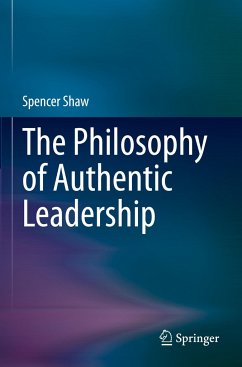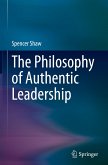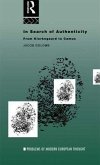This book uncovers the roots of authentic leadership through a detailed analysis of how philosophy and psychology are relevant for understanding leadership. It reinscribes virtue and integrity into leadership studies by way of key concepts which include; identity-formation, the narrative self, the importance of decision-making, and the philosophy of creativity. In an era when leadership integrity has come under serious attack from authoritarian leadership, and left and right- wing extremism, the 'Philosophy of Authentic Leadership' opposes all such forms by arguing for the pursuit of the common good, democratic rights, civic freedoms, and cosmopolitanism. This is a work of interest to students of leadership and political scientists alike.
Bitte wählen Sie Ihr Anliegen aus.
Rechnungen
Retourenschein anfordern
Bestellstatus
Storno








